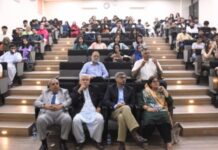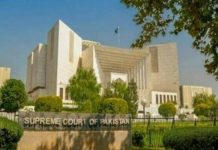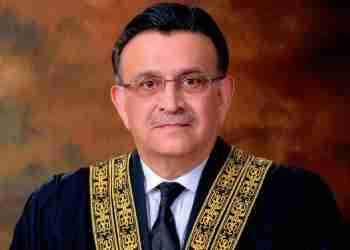ISLAMABAD, Jun 16 (NNI): The apex court would welcome any remedy against Article 184(3) of the Constitution if it’s done with caution, Chief Justice of Pakistan (CJP) Umar Ata Bandial remarked on Friday.
The remarks came as a three-member SC bench heard a set of appeals challenging the Supreme Court (Review of Judgments and Orders) Act, 2023 and the Election Commission of Pakistan’s (ECP) review against the verdict fixing May 14 as the date for holding the Punjab Assembly elections.
The CJP had earlier stated that the apex court had no issue with the new law expanding the scope of review petitions under Article 184(3), but the problem lay in the way the law was enacted. He observed that the government could enact any law which provides an effective remedy in case of the apex court’s decisions but the problem lies with the method and manner of enacting the law.
On Friday, Attorney General for Pakistan (AGP) Mansoor Usman Awan presented his arguments. He gave the example of a 2002 judgement by the Indian Supreme Court regarding curative pleas, saying the Indian SC had said that ensuring justice is no less important than the finality of a decision. The verdict said that absolute justice is God’s desire.
At this, Justice Munib Akhtar said a review was still a review and was not granted the status of an appeal.
CJP Bandial then remarked that a “complete test of justice” lay before the SC, adding that the Indian law also stated the same. “In an appeal, a case is heard once again. We should solve this issue,” he said.
“We welcome any remedy against Article 184(3) of the Constitution if it is done with caution. The question is on what basis a review should be allowed,” he said.
AGP Awan, in his arguments, further said that from high courts to the top court, petitioners were given the opportunity to present their cases. “That is why the SC has limited the scope of review,” he said.
He said that under Article 184(3), the SC heard the case directly which is why the scope of review under the article had been expanded. He argued that because of this, petitioners would be able to “fully convince the court”.
The article sets out the Supreme Court’s (SC) original jurisdiction and enables it to assume jurisdiction in matters involving a question of “public importance” with reference to the “enforcement of any of the fundamental rights” of Pakistan’s citizens. NNI








































